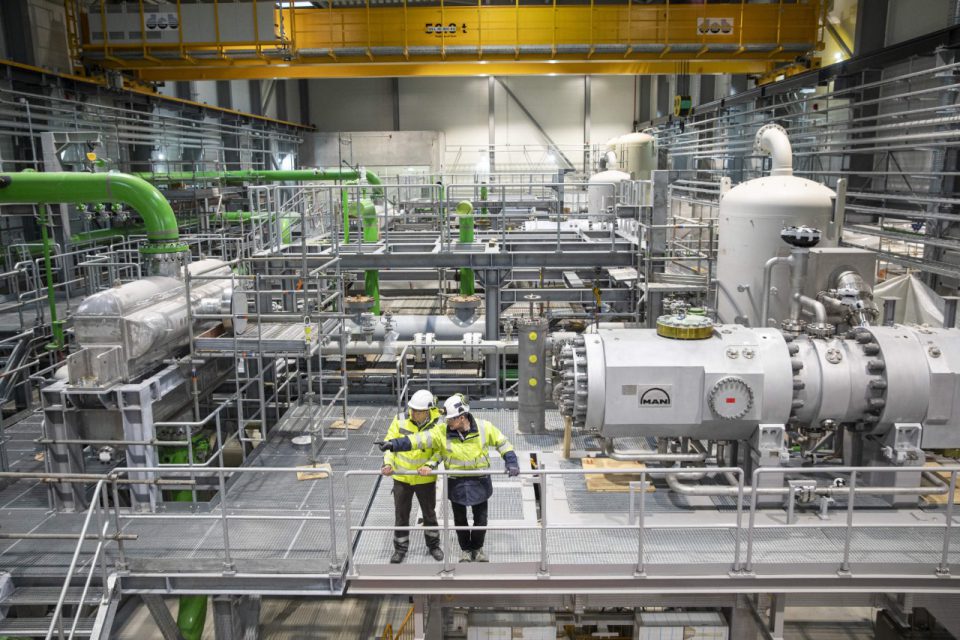Germany’s MAN Energy Solutions is constructing the world’s largest heat pump in the Danish harbor town of Esbjerg. This ambitious project is set to provide zero-emission and environmentally friendly heating to approximately 25,000 households and benefit around 100,000 people starting from the winter of 2023. The initiative aligns with Esbjerg’s innovative “District Heating for the Future” concept, aiming to revolutionize the way energy is consumed in buildings.
The exterior of the heat pump may appear as a simple black box, but its internal complexity is a marvel of engineering. Comprising a network of pipes, tubes, vessels, and compressors, the heat pump utilizes electricity generated by wind turbines to extract heat from seawater, warming homes with just two or three degrees of heat. Remarkably, the system employs carbon dioxide as a coolant, a crucial safety measure to prevent harm to the German-Danish Watten Sea national park, as Esbjerg prioritizes environmental safety even in the unlikely event of a malfunction.
A key innovation in this technology is the use of carbon dioxide throughout the entire system, eliminating the risk of releasing potentially poisonous coolants, which is a common concern with defective heat pumps. The MAN ETES (Electro-Thermal Energy Storage) heat pump not only ensures safety but also offers versatility. Uwe Lauber, MAN’s CEO, highlights its additional capabilities, stating, “You can also use it to produce cooling, such as for hospitals in summer,” emphasizing the adaptability of the system to diverse energy needs.
MAN Energy Solutions, based in Augsburg and a subsidiary of Volkswagen, has rapidly transitioned from specializing in internal combustion engines to becoming one of the foremost innovators in large heat pump technology. The Esbjerg project is the first significant undertaking of its kind, with construction already underway in Aalborg, Denmark, for a power station that is two-and-a-half times larger.
Meanwhile, in Ludwigshafen, Germany, MAN is installing the world’s largest industrial heat pump at BASF’s facility, with the goal of reducing carbon emissions from the global chemicals producer by up to 390,000 tonnes annually. This endeavor exemplifies the versatility of large heat pumps in utilizing waste heat, showcasing their potential to significantly contribute to sustainable and eco-friendly energy solutions.
As MAN Energy Solutions continues to spearhead advancements in heat pump technology, these projects underscore the potential for large-scale heat pumps to play a pivotal role in reducing carbon footprints and revolutionizing the way we approach heating and energy consumption on a global scale.

